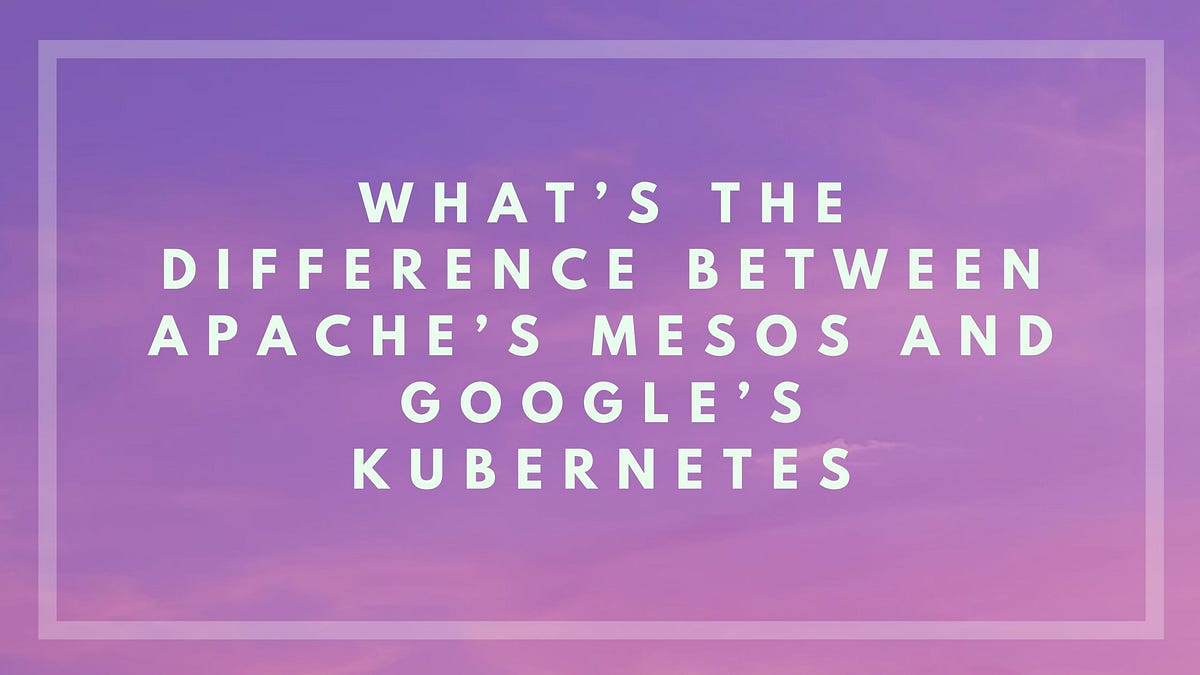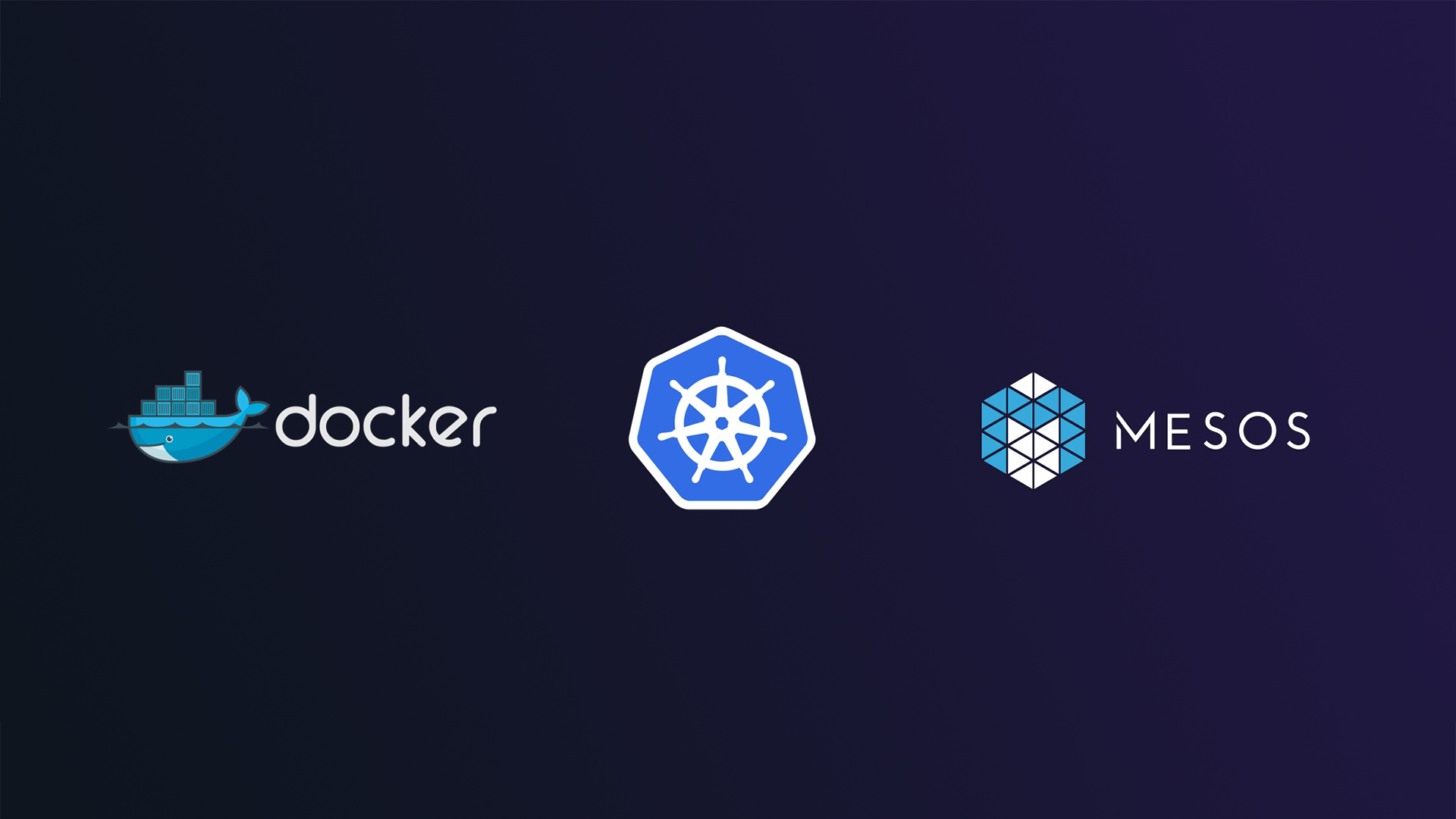Mesos vs. Kubernetes: Choosing Your Container Orchestrator
This article explores the key differences between Apache Mesos and Google Kubernetes, two popular cluster management systems, to help you determine the best fit for your needs.
This article explores the key differences between Apache Mesos and Google Kubernetes, two popular cluster management systems, to help you determine the best fit for your needs.
In the world of managing complex applications across clusters of servers, understanding resource allocation and orchestration is key. Imagine a large warehouse representing your cluster, where you need to store various applications efficiently. This is where Mesos and Kubernetes come in, playing distinct roles in this orchestration process.
// Mesos allocates resources
cpu: 2
memory: 4GB
# Kubernetes Pod definition
apiVersion: v1
kind: Pod
metadata:
name: my-app
spec:
containers:
- name: my-app-container
image: my-app-image:v1The code demonstrates a simplified interaction between a Mesos-like resource manager and a Kubernetes-like system. The Mesos class manages available CPU and memory resources, allocating them to KubernetesPod instances upon request. KubernetesPod represents a simplified pod abstraction that relies on the resource manager for resource allocation. The example highlights the roles of Mesos in low-level resource management and Kubernetes in providing higher-level abstractions for container orchestration. However, it's important to note that this is a highly simplified illustration and real-world systems are far more complex.
It's tricky to provide a direct code example that perfectly simulates the relationship between Mesos and Kubernetes. This is because they operate at a fairly low level of system infrastructure. However, I can illustrate the concepts with simplified code snippets and explanations.
Imagine this Python-like pseudocode representing a simplified Mesos-like resource manager:
class Mesos:
def __init__(self, total_cpu, total_memory):
self.available_cpu = total_cpu
self.available_memory = total_memory
def allocate_resources(self, cpu_request, memory_request):
if self.available_cpu >= cpu_request and self.available_memory >= memory_request:
self.available_cpu -= cpu_request
self.available_memory -= memory_request
print("Resources allocated successfully!")
# In reality, Mesos would provide details about where the resources are located
return {"cpu": cpu_request, "memory": memory_request}
else:
print("Not enough resources available.")
return None Now, let's represent a Kubernetes-like system interacting with our "Mesos":
class KubernetesPod:
def __init__(self, name, image, cpu_request, memory_request):
self.name = name
self.image = image
self.cpu_request = cpu_request
self.memory_request = memory_request
def deploy(self, resource_manager):
allocated_resources = resource_manager.allocate_resources(self.cpu_request, self.memory_request)
if allocated_resources:
print(f"Pod '{self.name}' deployed using image '{self.image}' with resources: {allocated_resources}")
else:
print(f"Failed to deploy pod '{self.name}'.")
# Example usage
my_mesos = Mesos(total_cpu=4, total_memory=8) # Simulate a cluster with 4 CPUs and 8GB RAM
my_app = KubernetesPod(name="my-web-app", image="nginx:latest", cpu_request=1, memory_request=2)
my_app.deploy(my_mesos) Explanation:
Mesos class keeps track of available resources and handles allocation requests.KubernetesPod class represents a simplified "pod" abstraction. It doesn't manage resources directly but requests them from the resource_manager (our Mesos).deploy method of KubernetesPod interacts with the Mesos instance to obtain resources.Key Points:
While this example doesn't involve actual Mesos or Kubernetes code, it helps visualize their roles in resource management and container orchestration.
This article explains the difference between Mesos and Kubernetes using a warehouse analogy:
| Feature | Mesos | Kubernetes |
|---|---|---|
| Analogy | Warehouse manager | Shelves and boxes |
| Function | Allocates server resources to applications | Organizes applications within allocated resources |
| Technical Detail | Provides low-level resource allocation (e.g., CPU, memory) | Defines application deployment using YAML files (e.g., Pods, containers) |
| Usability | Powerful but less user-friendly | More user-friendly with pre-built tools |
| Popularity | Overshadowed by Kubernetes | Became the dominant container orchestration tool |
| Relevance | Still relevant for specific use cases requiring fine-grained control | Built on top of Mesos' foundation, specializing in container orchestration |
In essence:
Both Mesos and Kubernetes address the challenges of managing applications across clusters, but they do so at different levels of abstraction. Mesos, like a diligent warehouse manager, excels at resource allocation, ensuring applications get the necessary CPU, memory, and other resources. Kubernetes, on the other hand, provides a more structured approach, offering a system of "shelves and boxes" to organize and deploy applications within the allocated resources. While Kubernetes's user-friendly nature and thriving ecosystem have contributed to its widespread adoption, Mesos remains a powerful tool for specific use cases demanding fine-grained control and support for diverse workloads. Understanding the strengths of each system is crucial for choosing the right tool for your specific orchestration needs.
 Apache's Mesos vs. Google's Kubernetes: Understanding the Key ... | Leading container orchestration technologies with different features and functionalities are Google's Kubernetes and Apache's Mesos. We'll examine the variations between these two technologies in this blog article, looking at their architectures, functionalities, and applications.
Apache's Mesos vs. Google's Kubernetes: Understanding the Key ... | Leading container orchestration technologies with different features and functionalities are Google's Kubernetes and Apache's Mesos. We'll examine the variations between these two technologies in this blog article, looking at their architectures, functionalities, and applications. What's the difference between Apache's Mesos and Google's ... | Apache Mesos and Google Kubernetes are both powerful systems for managing large-scale applications and containerized workloads, but they…
What's the difference between Apache's Mesos and Google's ... | Apache Mesos and Google Kubernetes are both powerful systems for managing large-scale applications and containerized workloads, but they… Apache Mesos vs Kubernetes vs Docker | D2iQ | D2iQ | Editorial note: what follows was written several years ago, in what amounts to a different world. That said, there is still a lot of wisdom here...
Apache Mesos vs Kubernetes vs Docker | D2iQ | D2iQ | Editorial note: what follows was written several years ago, in what amounts to a different world. That said, there is still a lot of wisdom here... Apache Mesos to be moved to Attic | Hacker News | Apr 6, 2021 ... ... for much more than what Kubernetes was desgined to. Kubernetes was supposed to be scheduler for Mesos and Google invested in it. Let's not ...
Apache Mesos to be moved to Attic | Hacker News | Apr 6, 2021 ... ... for much more than what Kubernetes was desgined to. Kubernetes was supposed to be scheduler for Mesos and Google invested in it. Let's not ... Paper: Large-scale cluster management at Google with Borg - High ... | Joe Beda (@jbeda) : Borg paper is finally out. Lots of reasoning for why we made various decisi...
Paper: Large-scale cluster management at Google with Borg - High ... | Joe Beda (@jbeda) : Borg paper is finally out. Lots of reasoning for why we made various decisi... Kubernetes vs. Mesos | CrowdStrike | Container orchestration engines (COEs) make managing containerized workloads easier by automating operational tasks. Kubernetes and Apache Mesos are two of the most popular COEs.
Kubernetes vs. Mesos | CrowdStrike | Container orchestration engines (COEs) make managing containerized workloads easier by automating operational tasks. Kubernetes and Apache Mesos are two of the most popular COEs.